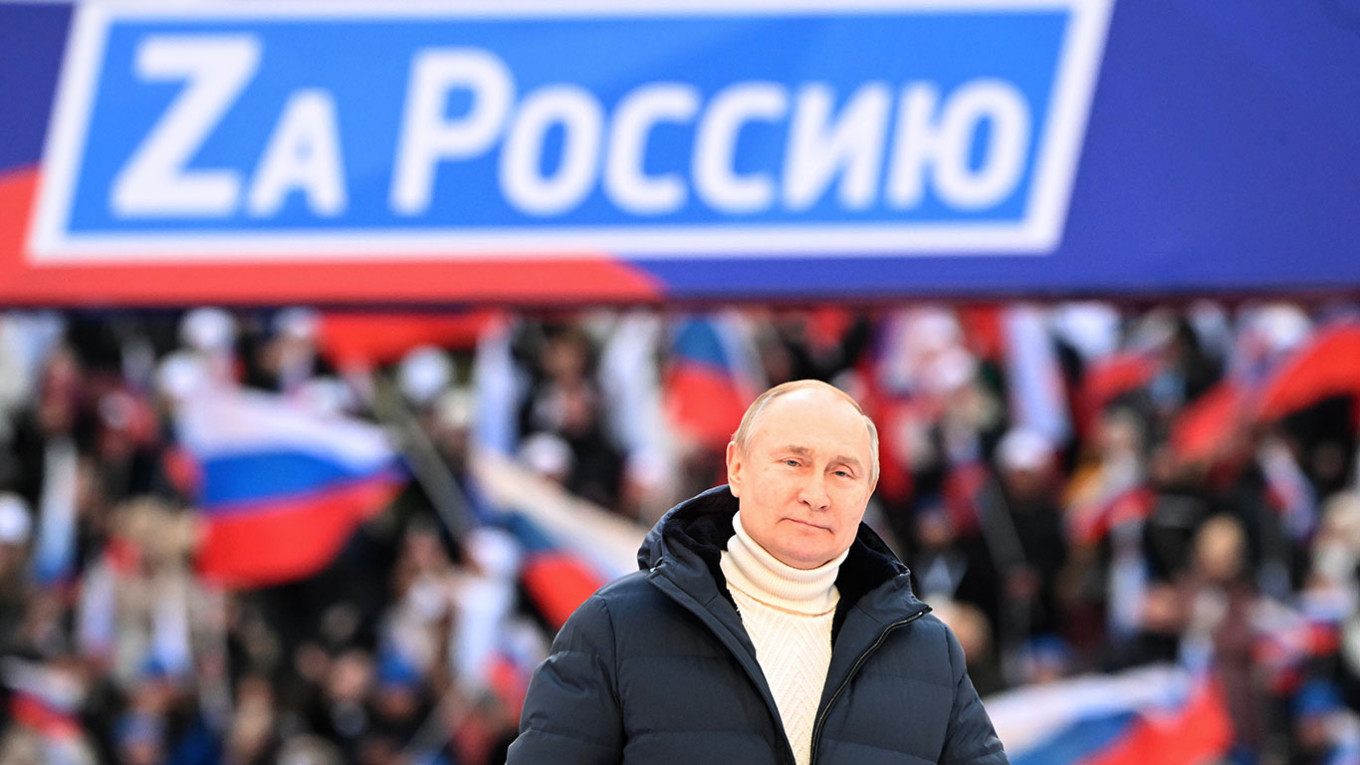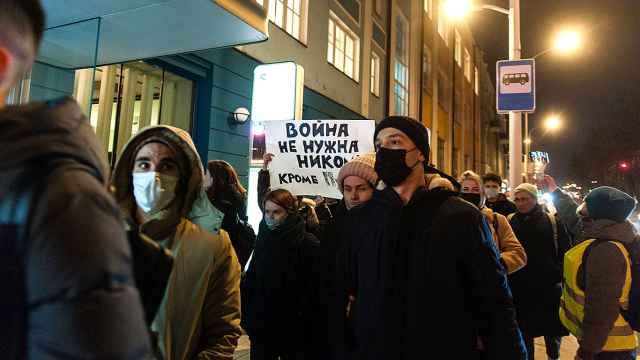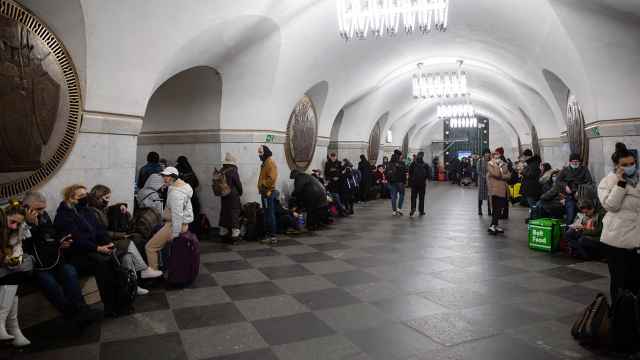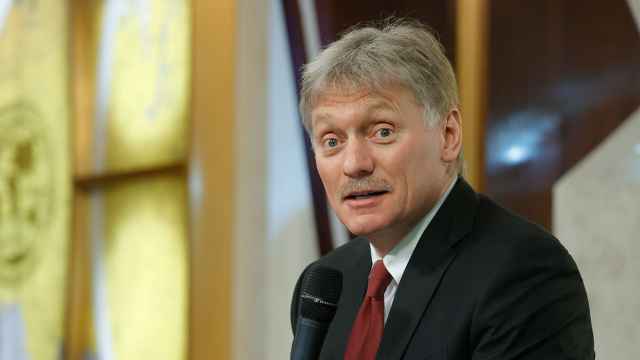Russian President Vladimir Putin led a pro-government rally that was beset by “technical difficulties” and reports of people being forced to attend.
The event marking the eighth anniversary of Russia’s annexation of Crimea, which is not recognized by most countries, came three weeks into Moscow’s full-scale invasion of Ukraine that has sparked fierce international condemnation.
"We have not had such unity for a long time," Putin said, referring to the “special military operation” in Ukraine as he addressed the crowd of about 95,000 and another 100,000 outside the stadium, according to the state-run RIA Novosti news agency.
Moscow’s Luzhniki Stadium was awash with Russian tricolor flags as snippets from Russia's military insurgency in Crimea flickered across the stadium's screens, accompanied by songs that celebrated the success of Russia's military.
A number of guest speakers, including RT editor-in-chief Margarita Simonyan and Foreign Ministry spokeswoman Maria Zakharova, spoke from a stage emblazoned with the phrases "For Russia" and "For a world without Nazism."
Many guest speakers were wearing orange-and-black St. George's ribbons in the shape of a Z, a new symbol of support for Russia's Armed Forces in the wake of the invasion.
Putin's impassioned speech defended Russia's military operation in Ukraine, citing the need to protect those in eastern Ukraine’s Donbas region from a so-called "genocide."
“This really was genocide. Stopping that was the goal of the special operation,” said Putin, who was wearing what has been identified as a $15,000 parka.
But the broadcast of his speech came to an abrupt end as Russia 24, the channel broadcasting the event, switched to footage of a military band playing on the same stage.
Russian state television is tightly controlled and such interruptions are highly unusual.
The Kremlin later said that the broadcast was "interrupted due to technical problems on the server."
Reports prior to the event stated that many of those in attendance had been forced to attend, with state employees used to bolster the annual celebration’s numbers.
“They stuck us in a bus and drove us here,” one woman told the Sota news outlet outside the stadium.
Meanwhile, a photo shared by the Avtozak Live news channel suggested that event-goers were offered 500 rubles to show up to the event.
Videos circulating on social media showed streams of people leaving the stadium some 20 minutes after the event had started.
Crowds were subject to rigorous security checks when entering the stadium, as the atmosphere in Moscow remains tense amid the Kremlin's decision to launch a military operation in neighboring Ukraine that many Russians have voiced opposition to.
The event's strict guidelines also banned any symbols associated with Ukraine or the West, according to an unconfirmed report by the Baza Telegram channel.
Despite what appeared to be a festive mood in the crowd, a number of independent journalists were detained near the stadium, according to Sota, all of whom were later released.
In addition to referencing the Bible, Putin closed his address by invoking naval commander Fyodor Ushakov, who is now the patron saint of Russia's nuclear bomber fleet.
"What a coincidence that the special military operation should fall on [the commander's] birthday," the Russian president said, as onlookers whooped in agreement.
A Message from The Moscow Times:
Dear readers,
We are facing unprecedented challenges. Russia's Prosecutor General's Office has designated The Moscow Times as an "undesirable" organization, criminalizing our work and putting our staff at risk of prosecution. This follows our earlier unjust labeling as a "foreign agent."
These actions are direct attempts to silence independent journalism in Russia. The authorities claim our work "discredits the decisions of the Russian leadership." We see things differently: we strive to provide accurate, unbiased reporting on Russia.
We, the journalists of The Moscow Times, refuse to be silenced. But to continue our work, we need your help.
Your support, no matter how small, makes a world of difference. If you can, please support us monthly starting from just $2. It's quick to set up, and every contribution makes a significant impact.
By supporting The Moscow Times, you're defending open, independent journalism in the face of repression. Thank you for standing with us.
Remind me later.






